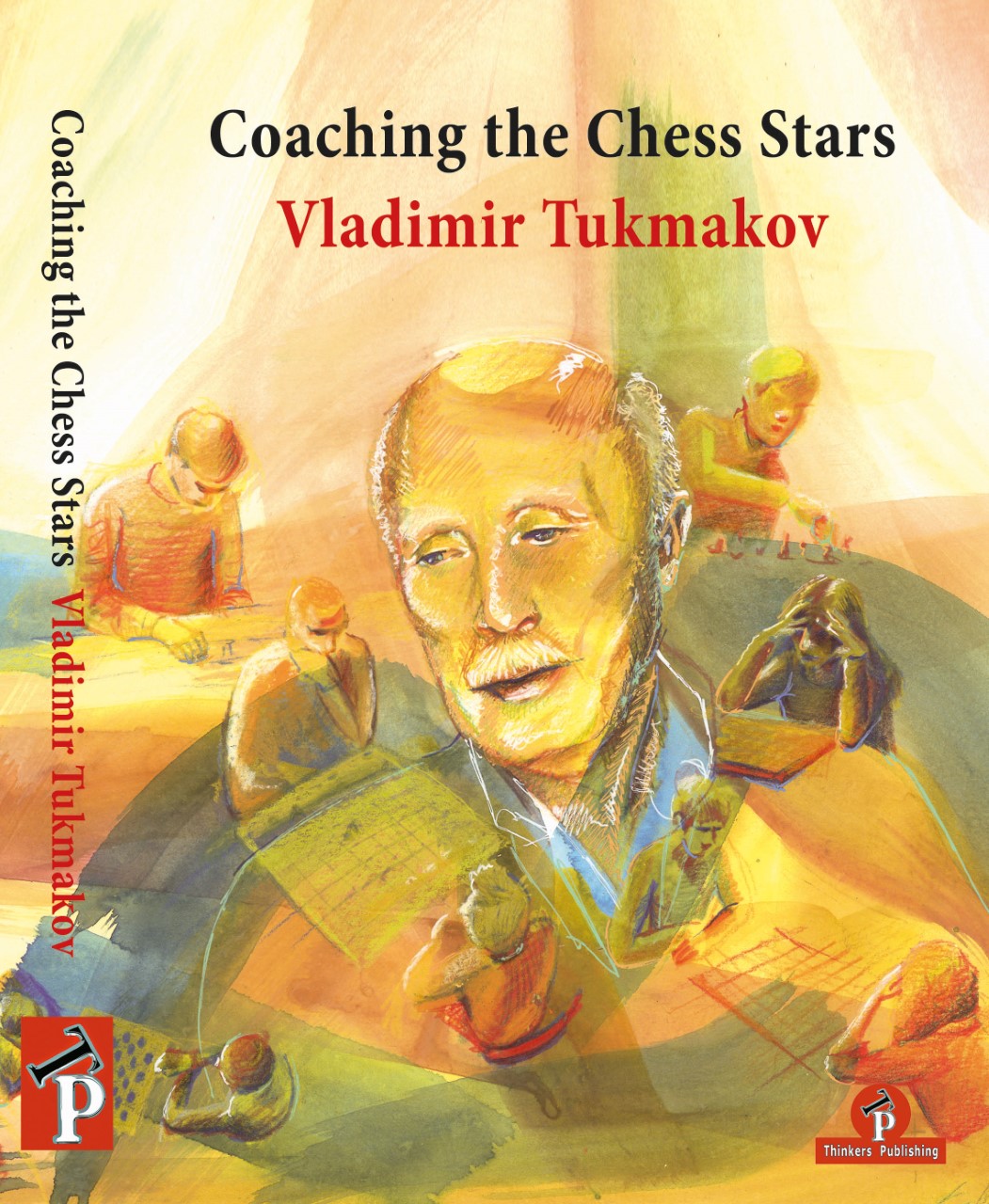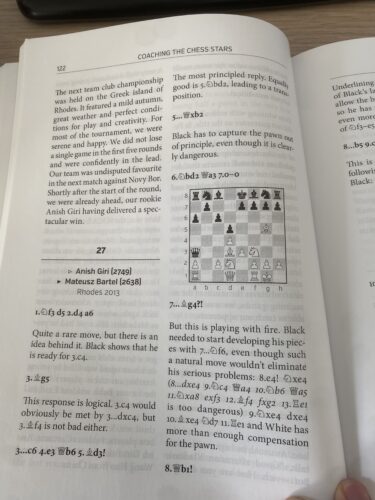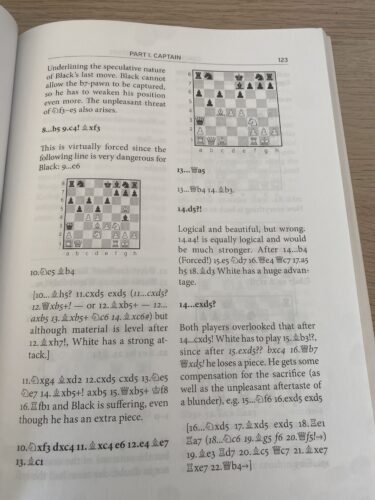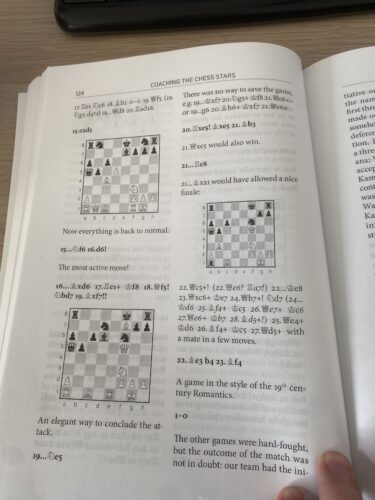Disclaimer 1: The following article contains several affiliate links to Amazon.com, meaning that if you go to Amazon and buy the recommended product (or some other product in an allotted period of time), the author of these lines will get a commission % from the purchase
Disclaimer 2: The following article is an excerpt from my article titled Best Chess Books 2022 in which I reviewed 20 chess books
Vladimir Tukmakov: Coaching The Chess Stars
In the last couple of years, the chess market has seen quite a few books featuring famous trainers, seconds, and coaches writing about their coaching/training experience with even more famous chess players.
Due to my great interest in chess history and my fascination with the chess culture, stories, and „behind-the-scenes“, I think I am very much the perfect target audience for these books. After reading the book Anand Files by FM Michiel Abeln back in 2020, 1 I purchased a few similar titles. And in 2022, I finally got to actually read three of them – including Coaching The Chess Stars, written by the renowned Russian player and coach Vladimir Tukmakov and published by Thinkers Publishing.
For those of you who are not familiar with Tukmakov 2 – in the 1970s and 1980s, he was a renowned Grandmaster and an accomplished player. 3 Nowadays, he is better known as a very renowned chess coach and a chess book author. He has been the captain of the Ukrainian, Azeri, and Dutch national teams and has individually worked with some of the top players of the current generation, such as Anish Giri 4 and Wesley So. He has also written 6 chess books since 2012.
In Coaching the Chess Stars, Tukmakov talks about his aforementioned experiences. In the first part of the book, he focuses on his role as the captain of the different national teams and SOCAR Chess Club 5, while in the second part, he talks about his development and experience as a chess coach.
Given the credentials and stature of the author and the high profile of his students, I had very high expectations from this book and I dived deep into it with a lot of enthusiasm. Alas, as I was turning the pages, this enthusiasm was surely being substituted with disappointment that lingered and persisted until the end of my reading experience.
There are many problems I have with this book. First and foremost – its structure and organization are very confusing and illogical. In the opening part of the book, Tukmakov first writes about how he got the offer to coach the national Ukrainian team in 2004 and only in the later part of the book how he developed as a coach in the 1970s, 1980s, and 1990s. This makes the storytelling in the book inconsistent and leaves it to the reader to connect the dots. In my mind, that was a very poor editorial decision as I feel it would have been much more compelling and logical from the narrative perspective to reverse the order and present his coaching career in chronological order.
This probably wouldn’t have been as bothersome if the content of the book itself was detailed, thorough, and full of context about different episodes, events, and games. Unfortunately, this is also not the book’s strongest suit as I felt that author’s insights often left a lot to be desired.
The book more reads like a report about different events and tournaments where the author had a captaining/coaching role rather than his in-depth, personal account of what was actually happening during these events and tournaments. You will read a lot about the results of the Socar team or about the games Anish Giri won and lost, but very little about the events happening between the tournament games, the training methods the author used with these remarkable players, what they did when a bad result happened, what were some difficulties and obstacles in their cooperation, etc.
This paragraph on the 2015 Wijk aan Zee tournament is quite typical in this regard:
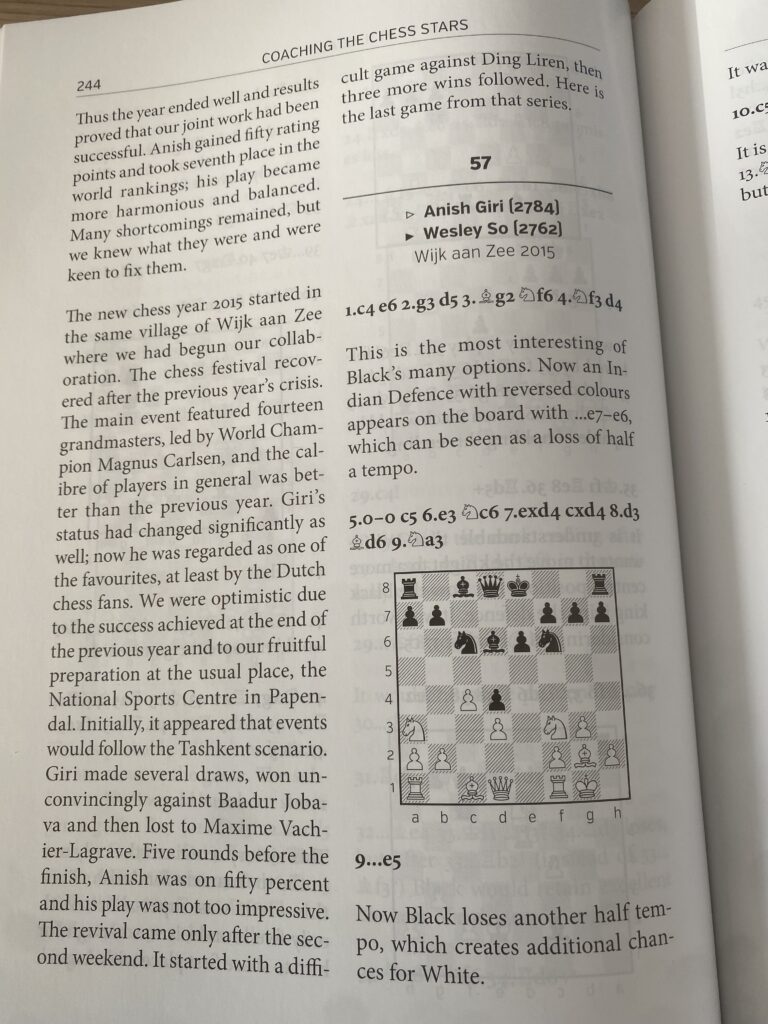
Just like another Thinkers Publishing book My magical Years With Topalov, 6 the whole thing is written very much in the „We went to place A and the result was B“. Such an approach is in very sharp contrast to a book like The Anand Files which digs incredibly deep into the „behind-the-scenes“ of Anand’s World Championship Matches and did a great job of talking about the participants’ emotions, difficulties, challenges, and general emotional state. This leaves the impression that the whole writing and editing approach was shallow and superficial. 7
And all these don’t even mention the standard issues that are present in almost any Thinkers Publishing book I own. In general, I find the general look of their books far less visually appealing than, say, New In Chess or Quality Chess Books (in terms of font, diagram size, the general page format, etc.).
But while that may be highly subjective, the amount and placement of the diagrams are objectively just bad and makes it absolutely impossible to read the book without the use of the physical board. Quite often, the games state in the middle of a page, and weird page breaks in the middle of the analysis force the reader to go back and forth to the previous page to follow what is actually going.
Especially since the analysis of the majority of the games follows the good old „Granmateritis“ approach of „as little text, but as many computer variations as possible“. Even when there is text, more often than not it features some of the good old chess catchphrases such as „The only way!, Equally bad!, !The position is won“, and „XYZ is more accurate! to name a few. Phrases that fill in the space, but that provide the reader with very little substance in terms of actually explaining what is happening.
For example, take a look at the analysis of game number 27 between Anish Giri and Mateusz Bartel:
I feel all these issues reflect the poor editorial standards of the Thinkers’ Publishing house. 8 It is a pity this is the case given that their books generally have very interesting topics and a lot of potential. I can only hope they will step up their game in the future.
All in all, if you are a hardcore fan of Vladimir Tukmakov or Anish Giri, I guess I could recommend you to buy this book. But if you are looking for a nice game collection or a book devoted to a certain area of chess coaching/chess culture, I would definitely recommend you to stay away from this one as there are so many better books out there. 9
2 stars!
- Which was featured on my 2020 book list and which I consider to be as one of the best chess books of all time
- Go read his Wikipedia Page?
- Definitely among the top 10/top 20 in the World
- Tukmakov was his main coach in the 2014-2016 period
- An Azeri chess club consisting of top chess players in the world that competed in the European Chess Club Championship for several years
- Which I also read back in 2020 but didn’t review on my blog since I was working for Chessable at the time – and its author and the head of Thinkers Publishing Romain Edouard was in a working relationship with us at a time. Fortunately, I don’t have any constraints any longer and can write whatever I want today.
- I don’t expect every chess book author to spend 8 years working on a book, but I definitely expect them to do more than this.
- As this is definitely not the only book where I have noticed similar issues
- I genuinely mean it, which is why I refrained from providing you with affiliate links for this book. You will thank me later.

